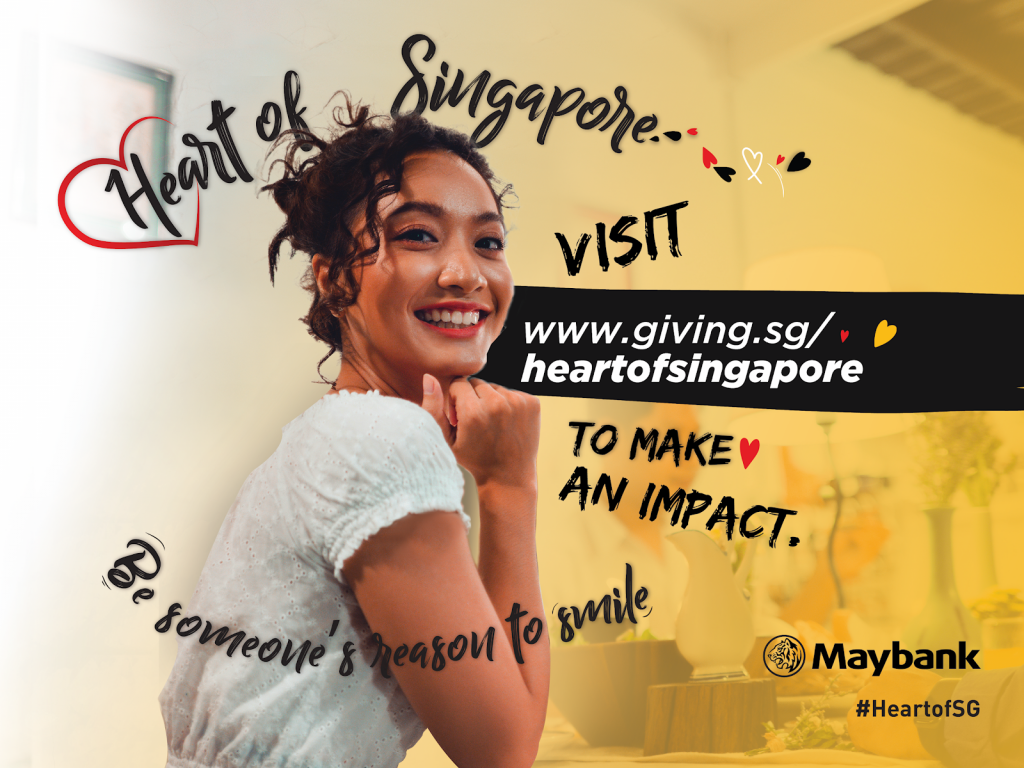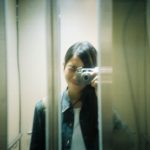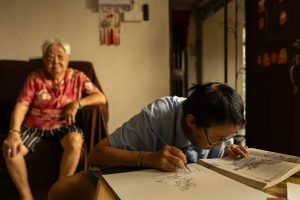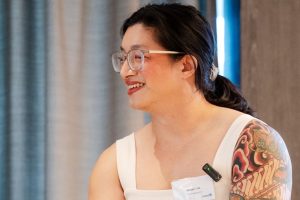All images by Zachary Tang and Feline Lim.
Minutes into our conversations, Pearl and Boon Keng, both individuals with physical disabilities, make the same request—for this to not be another “pity story”.
Due to the lack of exposure, I’ll admit that I’ve never really known how to interact with or behave around PWDs. Sometimes, interactions can be nerve-wrecking due to my fear of unintentionally offending the other party. More often than not, this leads to avoidance.
I know that I’m not alone. But as shared by the profiles in this story, it’s completely normal to feel awkward; it’s only problematic if we allow that unfamiliarity to remain a barrier.
The upside is that tackling this unfamiliarity is a lot easier than we think. We must first have a sense of disability awareness and basic etiquette. In conjunction with Maybank’s #HeartofSG campaign, we sought to debunk some of the current myths and misconceptions that surround PWDs.
1. It’s individuals first, disability second.
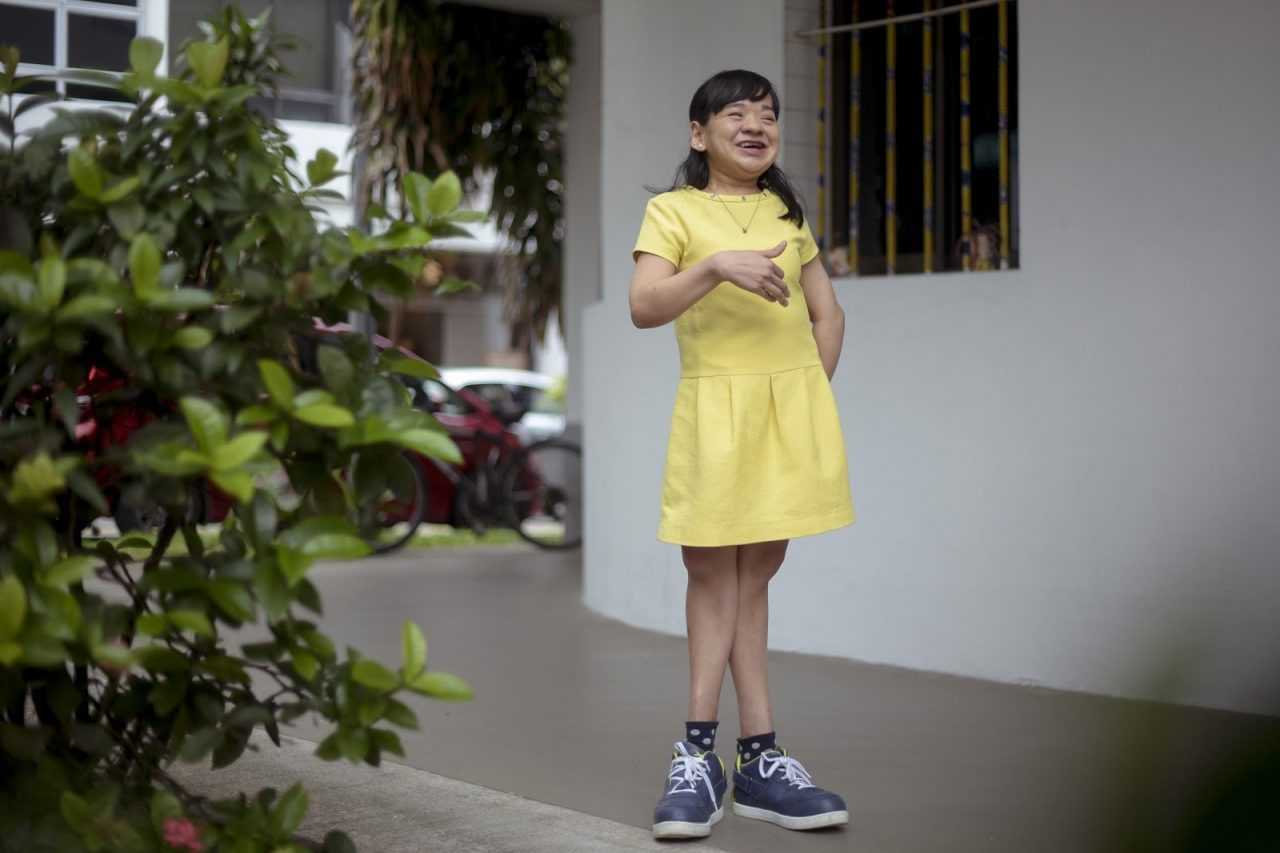
Even from afar, I felt drawn to Pearl’s warmth and jovial personality. Decked in a bright, yellow dress, she greeted me with a smile and we hit it off almost instantaneously.
She’s in her 30s, and currently a community and partnership manager for a global community platform for HR professionals.
“I have bowlegs where I walk in a v-shape, severe scoliosis, and restrictive lung disease which affects my breathing,” she tells me.
“But I’m also not defined by my disability. Contrary to popular belief, PWDs aren’t that different. We have similar needs.”

Since young, Boon Keng has been diagnosed with Duchenne Muscular Dystrophy, the more common and severe form of Muscular Dystrophy (MD). MD causes muscles to gradually weaken, leading to a loss of physical ability over time.
Many times, people see these disabilities first, and forget that individuals like Pearl and Boon Keng are people with their own aspirations and goals.
Boon Keng shares, “My wish is for people to go beyond understanding disability as a problem, but understanding the person as a friend.”
“We must know that PWDs are a huge community and there is a spectrum of disabilities. Often, we forget to go deeper to understand each person.”
Hence, the importance of practising the golden rule—treat others the way you’d want to be treated.
Today, Boon Keng is looking to write a book and to conduct more motivational speeches, where he can share his life story and empower others.
Similarly, Pearl wishes to give voice to others like her so that they can unleash their fullest potential.
“I’ve personally experienced what it is like to have someone who guides and believes in you. Being in a community of HR leaders and PWDs, I would love to have conversations or facilitate these conversations with PWDs and organisations. For those who would like to connect, I can be contacted via Linkedin.”
2. Ask before helping.
Having witnessed many awkward interactions in the past, I asked out of curiosity: “So … when should we extend help? And is that a good thing?”
Like with anything, it boils down to consent.
Pearl explains, “In context, being helpful is a good thing. But being unhelpful is also good because many times PWDs are able to do things on their own and it’s respectful when others allow us to continue unless we ask for help, or when in emergencies.”
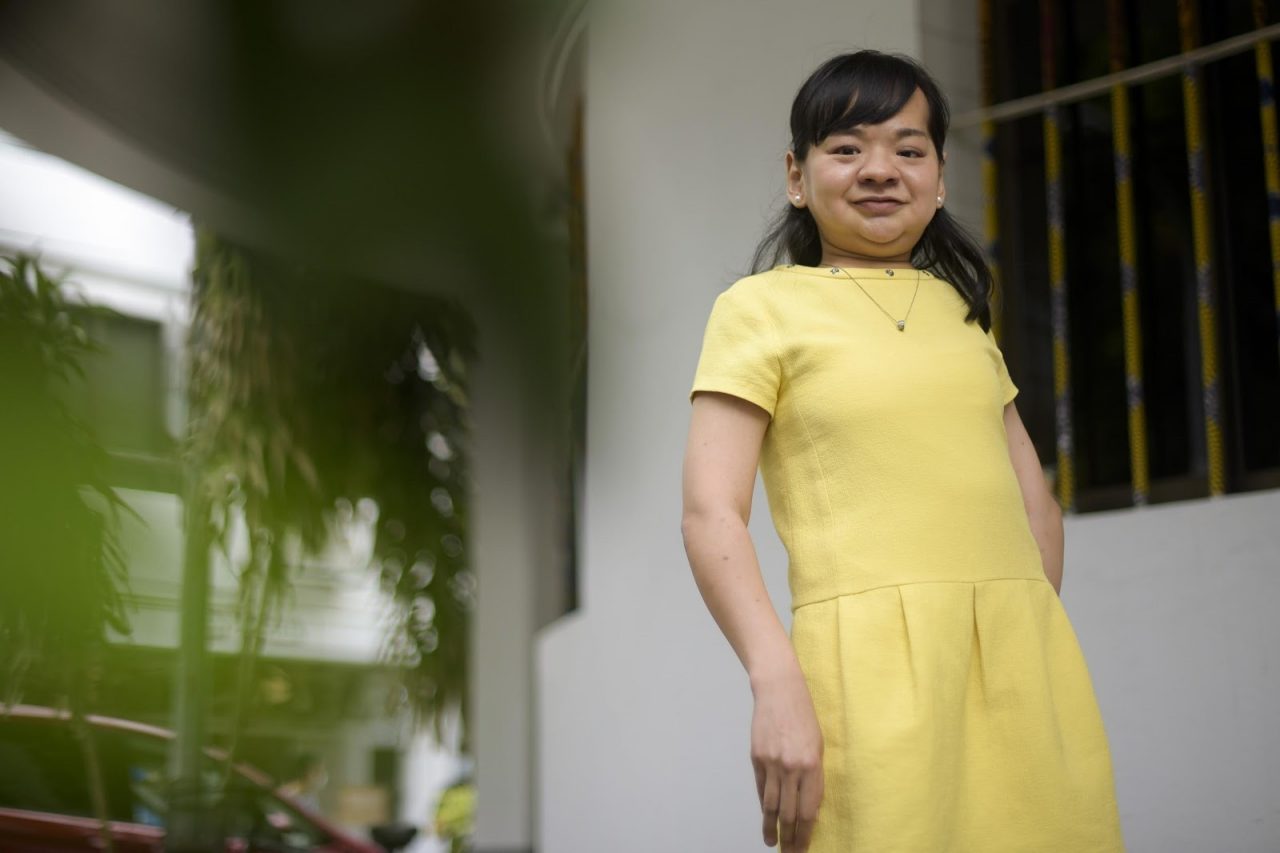
He then adds: “It’s always best to ask before helping. Sometimes, helping in the wrong way can make things worse. The device I’m using is too heavy to be pushed around or carried up the stairs. It really depends, so never assume. My fear is if my wheels get stuck in the MRT gap and people start messing around with the buttons or controller in the wrong way.”
3. Support is important and people are enablers.
The way we view ourselves is often shaped by society and those around us, be it in school, home, or at the workplace. This is no different for PWDs.
For instance, if a PWD grows up in an environment where words like “less capable” and “unworthy” are tossed around loosely, that gets ingrained in them. It’s hard to step out of that toxicity.
“Exactly. People matter. For a lot of things, it starts from the family core. Words construct realities. It’s also in the unsaid. I am lucky to have been around those who believe and support me,” Pearl says.
She also recounts several positive experiences, noting that people hold more power than they think they do. “It can be as simple as holding the door, or giving up their seat. I am also grateful to my colleagues, bosses and life coach as they saw my potential. Because of them, I am able to look beyond the labels I have.”

“Before, whenever it came to project work, I try not to make the active choice in picking teammates in fear of being a hassle,” addresses Boon Keng.
He beams when recounting these stories, of times when his poly friends chose to accompany him on long breaks between lectures. “They could have easily picked a further place to go, but they stayed with me. It meant a lot.”
Apart from schoolmates, Boon Keng also acknowledges the strong familial support that he has. “My family gives me the freedom to explore what I want without pressuring me, even when they know of my physical challenges.”
When we talk about PWDs, it frequently defaults to “us” and “them”. In an ideal world, both Pearl and Boon Keng hope to see people coming together and making the conscious effort to break some of these conventions.
4. Inclusion is in the everyday things.
As a society, we talk a lot about diversity inclusion. Unfortunately, talk doesn’t always translate to action.
“I have been working in a global company. What I’ve seen is that diversity inclusion is high on their agenda. In smaller local companies, perhaps that is still not the case. People are still unaware of how to approach the matter, even in their hiring practices,” shares Pearl.
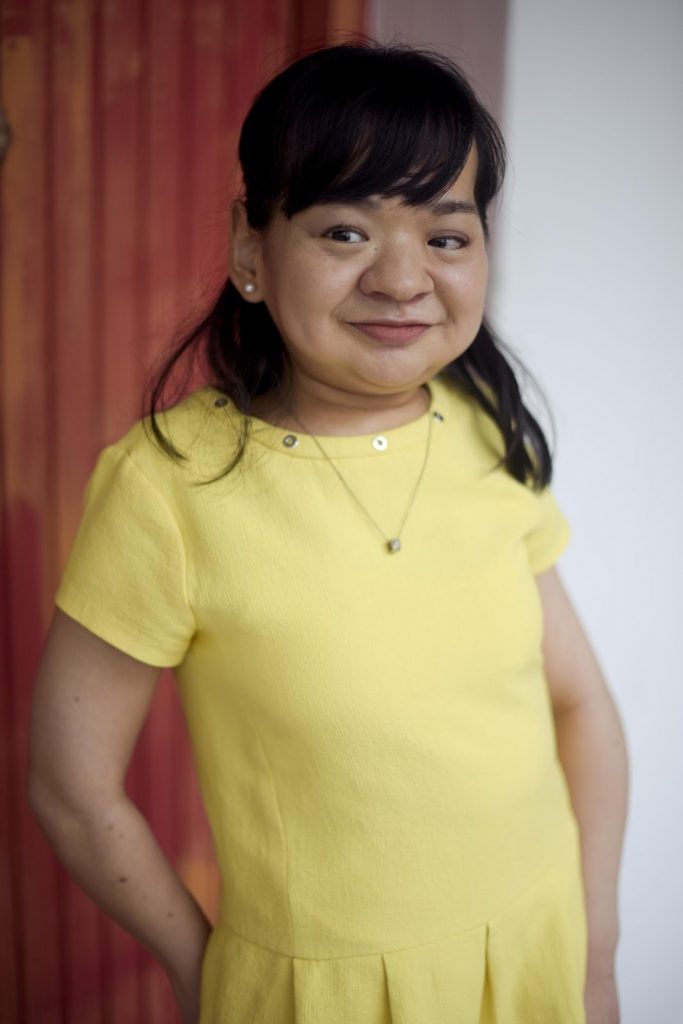
I observed her gleaming expression as she explained, “When I was in Taiwan, I had the most amazing experience with accessibility. At Yang Ming Shan, there’s actually a smooth path that you can take! All the places that I thought I couldn’t go, they’ve made it possible for me to. Accessibility is improving in Singapore, but it’s not quite there yet.”
On this topic, Boon Keng recounts, “I often find roadworks or temporary provisions not wheelchair-friendly, such as uneven or bumpy surfaces. The gaps between tiles makes it bumpy and hard to navigate. When I know that, I’ll avoid the place. Even the gradient of the slope matters. The steepness has to be just right.”
At one point, Pearl visibly perks up and adds, “Oh yes, look at the shoes I’m wearing? My legs are of different length and I require customised shoes. I used to order them from a shop in the U.S, but it has since closed down. It’s so hard to find an alternative or options in Singapore.”
It’s also sad that we have to wear ugly and unfitted clothes. Why can’t we wear ones with nice designs too?
Through all this, I wondered about their take on love and relationships. Is it taboo or are we just too afraid to talk about it?
Pearl shares, “During Chinese New Year, relatives would typically kaypoh about my cousins’ love life, but they’d naturally skip me. Does that mean I’m not worthy or expected to have a life like that?”
She speculates that this “discrimination” stems from fear of offending the other party or overstepping boundaries. There could also be fear of association, where “abled” and “disabled” must be clearly set apart. “It’s not a bad thing, it’s normal. But if people are willing to include us in these little things, that is the window for positive change to occur.”

After pondering, he adds, “To me, it’s not taboo. The dilemma of having MD is that we know that our bodies are getting weaker. We don’t want to burden anyone. But what happens if your heart yearns for a partner and to be loved? In the book I’m working on, I hope to touch on such personal experiences.”
Apart from formal workshops, it’s also important to have organic discussions between friends and family, he shares. Through that, we can then normalise things and remove their stigma.
According to the World Health Organisation, over 1 billion people — about 15% of the global population, live with some form of disability.
Life for the physically disabled may be a constant battle, but we must be careful not to peg them as heroes. Pearl and Boon Keng were never always this confident, and they made it clear that there will always be moments of anxiety and self-doubt.
At the end of the day, we are all human beings who struggle; sometimes succeeding, sometimes failing.
The challenge remains in not only introducing schemes and policies, but also in changing existing stigmas and discriminations.
The last thing anyone should do is treat PWDs as objects of charity. Instead, treat them as individuals who deserve the same dignities we expect for ourselves. And what is dignity? From our conversations, I gathered that dignity is a sense of feeling valued, a sensation of self-worth and belonging.
Often, its absence is noticeable only when in short supply. To make a difference, we must ensure that we educate ourselves and play our part in little ways so that it doesn’t get taken away.
– Club HEAL
– Movement for the Intellectually Disabled of Singapore (MINDS)
– Muscular Dystrophy Association (Singapore)
– SPD, a local charity that serves persons with disabilities
– WE CARE Community Services
No dollar is too little, and no action is too difficult. You can be someone’s reason to smile by helping to raise funds and contributing in little ways too. Find out what ‘making a difference’ means to Maybank here.
Keep up with RICE on Instagram, Spotify, Facebook, and Telegram.
For any interesting story ideas, share them with us at community@ricemedia.co.


